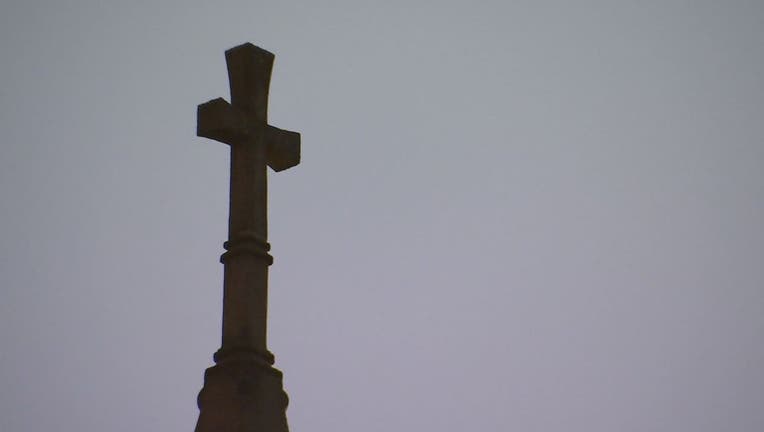Advocates list 100s of allegedly abusive California priests

SAN FRANCISCO - Advocates for victims of clergy sexual abuse delivered a list of more than 300 publicly accused abusers to the Roman Catholic archbishop of San Francisco on Thursday as they urged him to release his "secret" files on credibly accused priests.
The Survivors Network of those Abused by Priests took aim at Archbishop Salvatore Cordileone for being one 15 U.S. bishops — representing fewer than 10% of all dioceses — not to publicly name abusive clerics.
"Every bishop is his own king and they can do what they want with these lists. About 158 bishops in the United States have released lists over the past three or four years," said Dan McNevin of SNAP, and a church abuse survivor. "But the archbishop of San Francisco will not publish a list. And so we think it’s really important to get this list out, to get it published, to update it, to provide information to victims and their families."
An archdiocese spokesperson declined to answer emailed questions about why the archbishop hasn’t released a list of priests or whether he would reconsider doing so.
In a statement, the archdiocese said it reports sexual abuse allegations to authorities, an independent review board and parishes. Lawsuits are addressed in court
"Such allegations are treated very seriously to protect the victims and the vulnerable and to insure justice for all involved," the statement said. "Other than allegations that are facially not credible, investigations are initiated for any claims received. Any priest under investigation is prohibited from exercising public ministry."
All but 15 dioceses in the U.S. have either posted their own lists of credibly accused priests or, in the case of Colorado dioceses, provided names to that state’s attorney general that were subsequently published, according to the advocacy and research group Bishop-Accountability.org. The group’s list doesn’t include eparchies, the Eastern Catholic equivalent to dioceses. Twenty-nine provinces of religious orders have also published lists.
But the releases vary widely in quality, said Terry McKiernan, president of Bishop-Accountaiblity.org. Some include the priest’s full assignment histories, photos and other details, while others don’t. And not every diocese provides cross-references for when a priest of one diocese worked in another.
"They’re all over the map," McKiernan said.
As inconsistent as the lists are, they have provided many names not otherwise known publicly, and most dioceses in other countries have not followed suit.
The first lists were published two decades ago, and often dioceses release lists in response to outside events, such as a criminal investigation, McKiernan said. The last major surge of releases followed the 2018 Pennsylvania grand jury investigation into six dioceses.
Dioceses releasing the names of abusers can be healing for those who survived the abuse, McKiernan said.
"It is one thing when Bishop-Accountability puts something out, but if a bishop does it, it’s tantamount to an admission," McKiernan said. "Survivors have told me when it’s actually acknowledged by the institution itself, it makes a difference."
SNAP said it gathered the names of the 312 men associated with the San Francisco archdiocese over decades from lawsuits and investigations that were publicly disclosed. The vast majority were priests, about 10% were brothers and about five were lay persons.
All but about 30 or 40 of the men on the list have previously been named by other dioceses. Because abusers were often shuffled between dioceses, a SNAP spokesperson said it was important to name all of them so parishioners or parents of children educated by them in the San Francisco Bay area are aware they had been accused.
"It’s rare that they only have one victim," Mike McDonnell said. "Wherever they go, we fear their predilections travel with them."
___
Melley reported from Los Angeles. Peter Smith contributed to this story from Pittsburgh.

